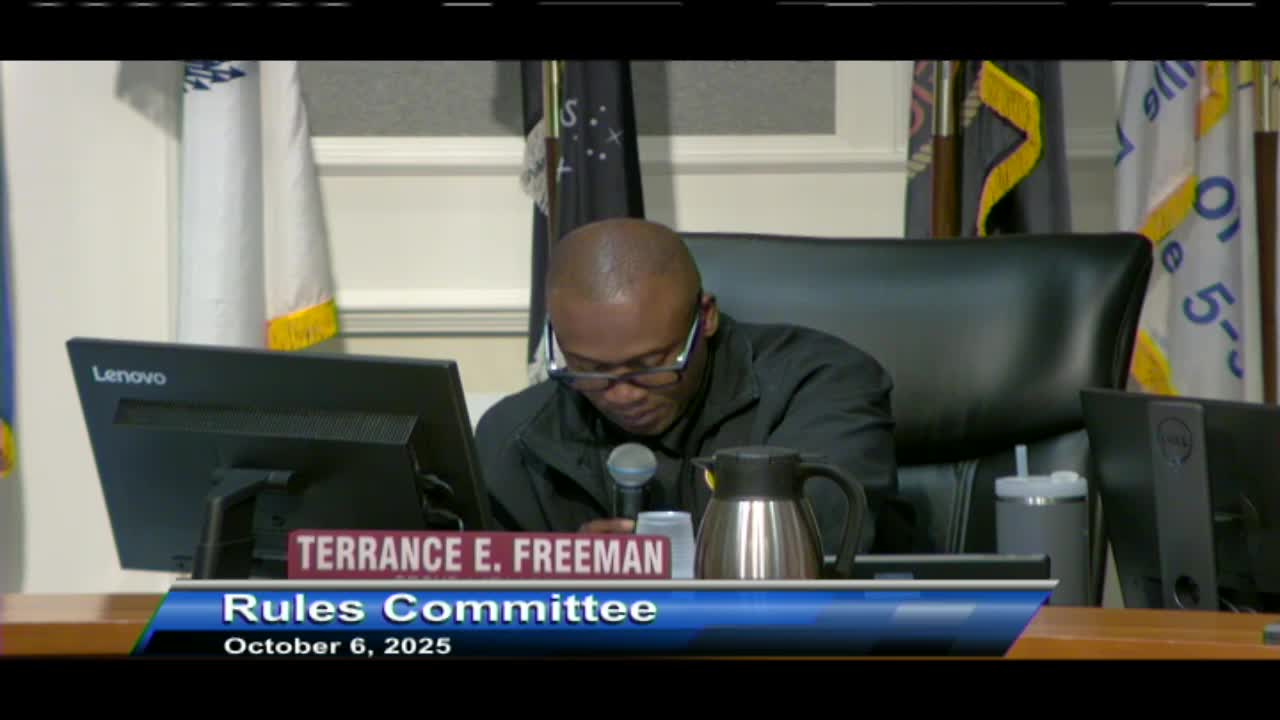Council approves flexible ethics training but keeps annual one‑hour local update
Get AI-powered insights, summaries, and transcripts
Subscribe
Summary
The Rules Committee approved a change to local ethics and Sunshine training that allows council members to complete the required four hours in flexible formats but requires up to one hour annually devoted to local Jacksonville law and points of emphasis.
The Jacksonville City Council Rules Committee on Oct. 6 approved an amendment to local ethics and Sunshine training requirements that allows council members to complete the required four hours of training in flexible formats — including quarterly one‑hour sessions or online viewing — while retaining a required local touch point of up to one hour each year. The committee approved the bill as amended by a recorded vote of 5 yeas and 1 nay.
Council Member Chris Miller, who introduced the proposal and deferred it to obtain input from the city ethics commission, said the amendment preserves a four‑hour annual training requirement but creates more flexible delivery options. “By adding the flexibility, it will allow those returning council members to be able to view … the recordings,” Miller said after presenting the ethics commission’s recommendations.
The ethics commission and the city ethics director urged that at least one hour annually be devoted to local requirements and points of emphasis — local provisions in Jacksonville’s Chapter 15 (Sunshine Law compliance) and Chapter 602 (local ethics code) — that state or external trainings may not cover. The final amendment inserts language requiring up to one hour to address “relevant changes to or interpretations or applications of such laws, if any, or any areas of emphasis as determined by the Office of General Counsel or the city ethics director.”
Several council members supported the amendment as a practical update for members with scheduling conflicts. Vice Chair Terrence Freeman and others noted the ethics office has been accessible to answer follow‑up questions and stressed the value of relationship‑building with ethics staff. Freeman said the flexibility would help members juggling work and family obligations while maintaining training obligations.
Some members urged stronger verification for online completion. Council Member Michael Boylan asked whether the ethics office could add a verification or assessment component — scenario‑based questions or Q&A checkpoints — so members who view training remotely provide evidence they engaged with the material. Ethics staff said they can and do use scenario‑based learning and could incorporate questions for the locally produced materials, though they cannot change external providers’ content or testing.
Visiting Council Member John Carlucci, who said he helped create the ethics commission, urged that in‑person classroom training remains the ideal format and warned that shifting to primarily online training could be a step backward. Proponents said in‑person sessions will remain available and that the amendment preserves a required local hour and the full four‑hour annual requirement.
Action: motion and second on amendment; amendment passed and bill 20250658 was approved as amended (5 yeas, 1 nay).
